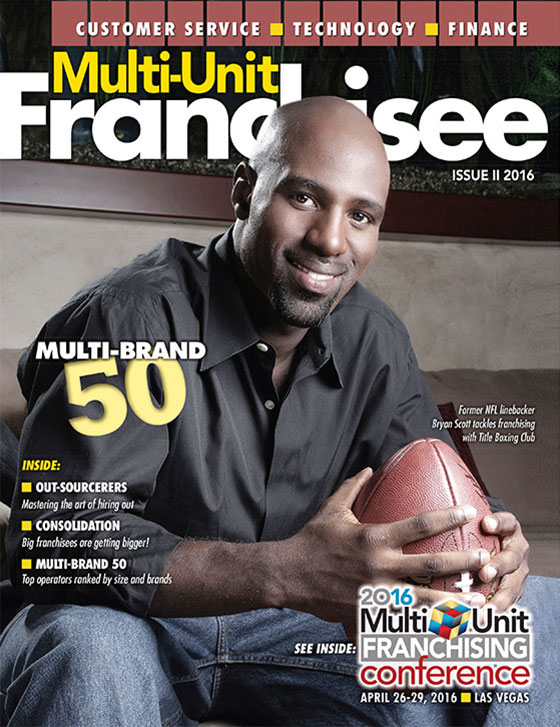"Compassion" & "Empathy": Powerful Words in Customer Service

I think the two most powerful words employees need to have permeating through their consciousness are "compassion" and "empathy." When you genuinely serve with compassion and empathy, your customer service is on a completely different level. The challenge is, How do you teach compassion and empathy? How do you make them more than just buzzwords and platitudes?
The top world-class customer experience organizations constantly put their employees in the shoes of the customer. When your employees really understand the plight of the customer--what the customer is going through, their daily battles--it starts to crystallize for them the critical importance of the customer experience they deliver, as well as the level of genuine caring they show each customer.
- Customers are not rational. Emotions overpower and manipulate our reasoning, and emotion leads to action. Customer experience can trigger a wide array of emotions that can have a great influence on repeat business. Sometimes we don't know why we like going to a certain place, but something drives us to stop there. We make logical reasons about why, defending the fact that it is based on convenience or something else. But the truth is that a business that delivers a unique experience has emotional capital that can be subconscious. On the other hand, when we hear of a brand and have negative thoughts, most often the case is that one time a poor experience left a permanent negative stamp on our mind.
- It is rational to be irrational. One of the most confusing and frustrating things to employees is the unreasonable way customers can react to something that seems so minor. However, when a customer has expectations--not unrealistic expectations, but simple ones about what it will be like to do business with you--and the business fails to deliver, that customer can get emotional. For instance, the customer could be having a stressful day, counting on the one company they can always trust (these are typically your best customers), yet this one time they not only didn't get to escape, their stress level increased. Even though it may have been the first time the company messed up with a particular customer, that customer can react emotionally. It is critical that customer emotions be part of employee service-recovery training--especially for dissatisfied customers. Once employees understand there is a good probability of a customer reacting emotionally instead of rationally, they won't take it personally and are better able to make a brilliant comeback.
- Anti-no zone. My employees don't need to ask permission to do anything for a customer except use the word "no." And to my knowledge, we have never given permission. It doesn't mean everything is a "yes," but "no" is the word heard most often in business. Train your employees to eliminate it, treat it like a swear word, and focus on alternatives. An article entitled "Stop Trying To Delight Your Customers" in the Harvard Business Review demonstrates the power of removing the word "no" from your company's vocabulary. Ameriprise Financial asked its customer service reps to capture every instance in which they were forced to tell a customer "no." While auditing the "no's," the company found many dated policies that had been outmoded by regulatory changes, systems, or process improvements. During its first year of "capturing the no's," Ameriprise modified or eliminated 26 policies. It has since expanded the program by asking front-line reps to come up with other process efficiencies, generating $1.2 million in savings as a result.
- How hard do you make it for your customers to resolve issues? A study from the HBR article shows the level of frustration customers have to go through when trying to solve a problem:
- 56 percent reported having to re-explain an issue
- 57 percent reported having to switch from the web to the phone to solve a problem
- 59 percent reported expending moderate to high effort to resolve an issue
- 59 percent reported being transferred
- 62 percent reported having to repeatedly contact the company to resolve an issue.
- The "AskOnce" promise. Another great example from the article explains how some companies are making low effort by the customer the cornerstone of their service value proposition. South Africa's Nedbank instituted an "AskOnce" promise, which guarantees that the rep who picks up the phone will own the customer's issue from start to finish. The immediate mission is clear: leadership must train front-line employees on mitigating disloyalty by reducing the effort customers must make.
John R. DiJulius III, author of The Customer Service Revolution, is president of The DiJulius Group, a customer service consulting firm that works with companies including Starbucks, Chick-fil-A, Ritz-Carlton, Nestle, PwC, Lexus, and many more. Call him at 216-839-1430 or email [email protected].
Share this Feature
Recommended Reading:
FRANCHISE TOPICS
- Multi-Unit Franchising
- Get Started in Franchising
- Franchise Growth
- Franchise Operations
- Open New Units
- Franchise Leadership
- Franchise Marketing
- Technology
- Franchise Law
- Franchise Awards
- Franchise Rankings
- Franchise Trends
- Franchise Development
- Featured Franchise Stories
FEATURED IN

Multi-Unit Franchisee Magazine: Issue 2, 2016

$250,000
$150,000





 The multi-unit franchise opportunities listed above are not related to or endorsed by Multi-Unit Franchisee or Franchise Update Media Group. We are not engaged in, supporting, or endorsing any specific franchise, business opportunity, company or individual. No statement in this site is to be construed as a recommendation. We encourage prospective franchise buyers to perform extensive due diligence when considering a franchise opportunity.
The multi-unit franchise opportunities listed above are not related to or endorsed by Multi-Unit Franchisee or Franchise Update Media Group. We are not engaged in, supporting, or endorsing any specific franchise, business opportunity, company or individual. No statement in this site is to be construed as a recommendation. We encourage prospective franchise buyers to perform extensive due diligence when considering a franchise opportunity.